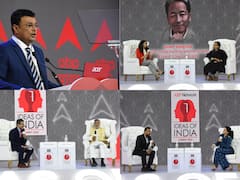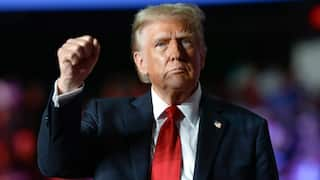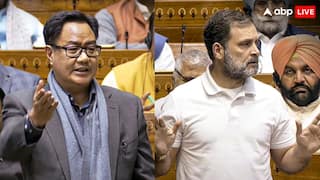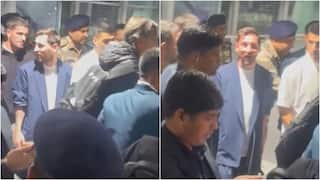Ideas Of India 2024: Indian Economy's Problem Is Underemployment, Not Unemployment Says Dr Arvind Panagariya
Speaking about the issues plaguing the economy, the economics expert said that the workforce in India today is functioning with very little capital and this leads to a reduction in productivity

India’s problem is not of unemployment, but rather of underemployment, said Dr Arvind Panagariya at the ‘Ideas of India’ Summit on Saturday. Speaking at the ABP Network's third edition of 'Ideas of India Summit' , the chairperson of the 16th Finance Commission said, "If you look at serious surveys like labour force survey, employment rates are not very high. Rural is even less, aggregate has been around 3 and 4 per cent, our problem is not unemployment but rather, underemployment. Our productivity is low and jobs that can be done by one person is often done by two or three people. We are a country with a very large workforce and we are labour abundant, but capital scarce.”
Lauding the growth of the country, he maintained that as an economist, he remained very happy with the way the Indian economy is growing, however, stressed that some reforms need to be accelerated in their implementation.
Problems Hindering Economic Growth
Speaking about the issues plaguing the economy, the economics expert said that the workforce in India today is functioning with very little capital and this leads to a reduction in productivity. He said that while the country does have capital, it is not distributed evenly.
“I think that capital is sufficiently there and our savings rate has climbed back up. We are very much there in terms of total capital. However, it is sitting in industries that employ very few workers,” the professor explained.
Another issue being faced by the Indian economy is the lack of appropriate labour laws in the country, he noted. He said that the labour laws have been passed, however, they remain to be properly implemented. “Labour laws have still not been reformed and implemented,” he said.
He explained that passing laws in a democracy is a time taking process and the laws need to be implemented across the entire country simultaneously. Therefore, he stated, that the implementation of reformed labour laws has not been completed yet.
Also Read : How Manufacturing Will Be The Core Sector Hiring Even In 2047 India
Reforms Needed
The professor stated that the Indian economy has fared very well in the recent years. “I have seen the old and new India. We had ups and downs, but the trend has continued to be towards liberalisation. As a result, we have now grown about 7 per cent a year in real rupees and in dollars, about 8 per cent a year. We would have never imagined in 1980s that this could happen. When one looks into the future, it looks even better,” he said.
However, he added that certain reforms can be taken to help accelerate the economy’s progress. He noted that while India has gone through ‘tremendous growth’ in infrastructure, the economy today needs a push for liberalisation and continued reforms to be implemented at a swifter pace.
In addition to the labour laws, he said the Indian economy needs to sign more free trade agreements (FTAs). He noted that India already has an FTA with Australia and UAE, and the possibility of the agreement with the UK finalising before the elections remained very high. “Once we sign a FTA with the EU, we should look at signing one with the United States as well,” he added.
Further, in reforms, he called for a push to liberalise the economy further. He noted that with privatisation of the public sector enterprises, the firms have seen an increase in productivity and efficiency.
He urged the private industry in the country to think ahead and compete with China. “We need continued reforms and liberalisation. We are the natural successor to China as it recedes from the market,” he said.
Professor Panagariya is a key figure in Indian economics and policy and has been appointed as the Jagdish Bhagwati Professor of Indian Political Economy. Before joining Columbia University, the professor also worked in crucial positions with the Indian government. He acted as the inaugural vice chairman for the NITI Aayog from January 2015 to August 2017. Also, he served as India’s G20 Sherpa and led the negotiations for the G20 Communiques under the G20 Presidencies of Turkey, China, and Germany.
This marks the third edition of the ‘Ideas of India Summit’ hosted by the ABP Network. The two-day long summit intends to dive into ‘The People’s Agenda’ and examine the diversified aspects of the forthcoming elections set to take place in India this year.
Watch streaming of Ideas of India on Metaverse
The event is witnessing participation from eminent personalities from several sectors and intends to provide a platform for detailed discussions on the various aspects of Indian society and governance.
Other personalities set to grace the second day of the summit include eminent politician Shashi Tharoor, actor Kareena Kapoor Khan, Former J&K Chief Minister Omar Abdullah, Bandhan Bank MD and CEO Chandra Shekhar Ghosh, Actor Sobhita Dhulipala, and many others.






































